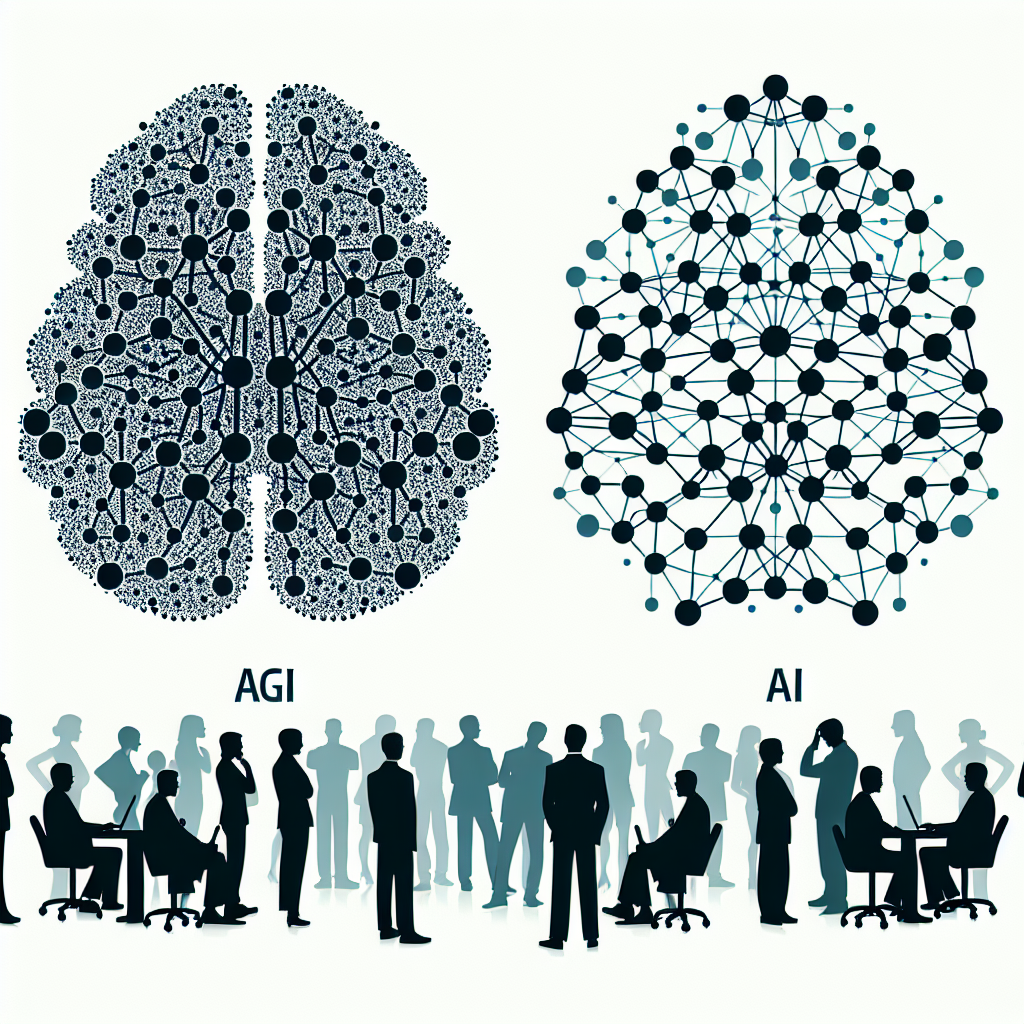Artificial Intelligence (AI) has been a hot topic in recent years, with advancements in technology allowing for the development of increasingly sophisticated AI systems. However, not all AI is created equal, and there are significant differences between Artificial General Intelligence (AGI) and Narrow AI. Understanding these differences is crucial for grasping the potential implications for society as AI continues to advance.
AGI vs. Narrow AI: What’s the Difference?
The main distinction between AGI and Narrow AI lies in their capabilities and scope. Narrow AI, also known as Weak AI, refers to AI systems that are designed for specific tasks or domains. These systems are limited in their abilities and can only perform the tasks they were explicitly programmed for. Examples of Narrow AI include virtual assistants like Siri and Alexa, as well as recommendation algorithms used by companies like Netflix and Amazon.
On the other hand, AGI, also known as Strong AI, refers to AI systems that have the ability to understand and learn any intellectual task that a human being can. These systems are not limited to specific tasks or domains and have the potential to exhibit human-like cognitive abilities, such as reasoning, problem-solving, and creativity. AGI is often seen as the holy grail of AI research, as it has the potential to revolutionize many aspects of society.
Implications for Society
The development of AGI has the potential to bring about significant changes to society, both positive and negative. On the positive side, AGI has the potential to revolutionize many industries, including healthcare, finance, and transportation. AGI systems could help doctors diagnose diseases more accurately, traders make better investment decisions, and self-driving cars navigate traffic more efficiently.
However, the development of AGI also raises ethical and societal concerns. One of the biggest concerns is the potential for AGI to outperform humans in many tasks, leading to widespread job displacement. As AGI systems become more advanced, it is possible that they could perform a wide range of tasks more efficiently and cost-effectively than humans, leading to widespread unemployment and economic disruption.
Additionally, the development of AGI raises concerns about the potential for misuse and abuse. AGI systems could be used for malicious purposes, such as hacking into systems, spreading misinformation, or even committing acts of violence. Ensuring that AGI systems are developed and deployed responsibly will be crucial to minimizing these risks.
Frequently Asked Questions
Q: Will AGI surpass human intelligence?
A: It is possible that AGI could eventually surpass human intelligence in many tasks, as AGI systems have the potential to learn and adapt at a much faster rate than humans. However, whether AGI will ever reach or exceed human-level intelligence remains a topic of debate among researchers.
Q: What are the ethical implications of AGI?
A: The development of AGI raises a number of ethical concerns, including issues related to job displacement, privacy, and the potential for misuse and abuse. Ensuring that AGI systems are developed and deployed responsibly will be crucial to minimizing these risks.
Q: How close are we to achieving AGI?
A: While significant progress has been made in the field of AI, we are still a long way from achieving true AGI. Many researchers believe that it will take decades, if not centuries, to develop AGI systems that are on par with human intelligence.
Q: What steps can be taken to ensure the responsible development of AGI?
A: Ensuring the responsible development of AGI will require collaboration between researchers, policymakers, and industry stakeholders. This includes developing ethical guidelines for the development and deployment of AGI, as well as implementing safeguards to prevent misuse and abuse.
In conclusion, the differences between AGI and Narrow AI are significant, with implications for society that are both exciting and concerning. While AGI has the potential to revolutionize many aspects of society, it also raises ethical and societal concerns that must be addressed. By understanding the differences between AGI and Narrow AI and taking steps to ensure the responsible development of AGI, we can harness the potential of AI while minimizing the risks.

